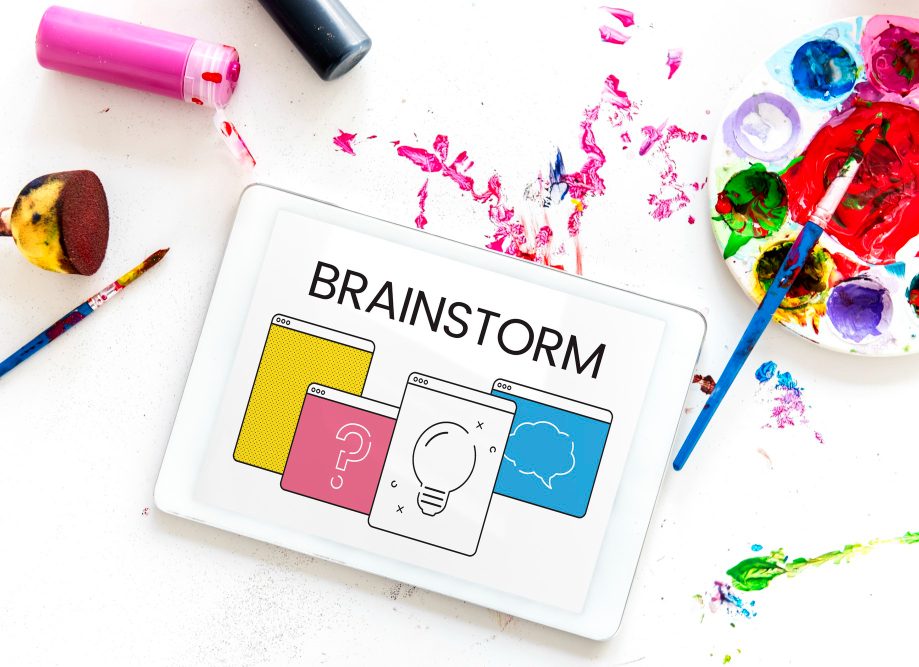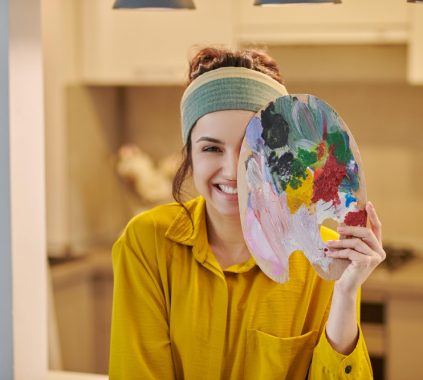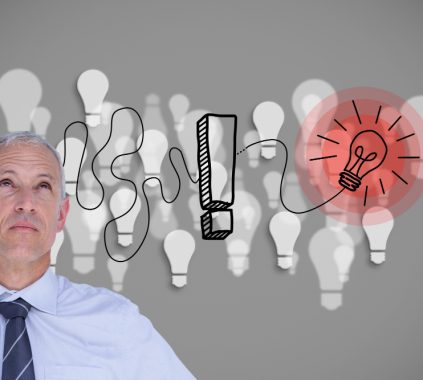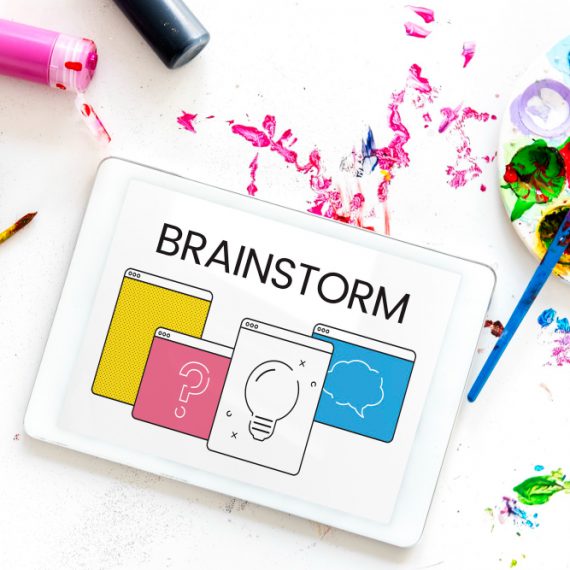
How Spain Outsmarted US Tariffs Without Escalating the Conflict
8 November 2025 • Articles • Views: 442
In a surprising turn of global trade diplomacy, Spain managed to sidestep the latest wave of US tariffs — not through retaliation or confrontation, but through strategic negotiation and quiet innovation. While other nations reacted defensively to Washington’s renewed protectionist stance, Spain charted a different course — one...

Nvidia reportedly to invest up to $2bn in Elon Musk’s xAI
24 October 2025 • Articles • Views: 62
GlobalData October 8, 2025 2 min read What does this reveal about Nvidia’s broader AI strategy? How does this funding compare to other major AI investments? How does Nvidia’s investment structure in xAI work? Why is xAI seeking such massive funding now?In this article: Nvidia is set to participate in a $20bn funding...

How to Learn New Skills Faster: Techniques That Help Your Brain Retain Information
6 October 2025 • Articles • Views: 95
Learning new skills can feel exciting at first, but it’s easy to hit a point where progress slows and you wonder why nothing seems to stick. The truth is, mastering something new isn’t just about how much time you spend practicing—it’s about how that time is structured and how your brain processes information. Research shows that the brain thrives on focused, intentional repetition mixed with periods of rest. Instead of cramming, spacing out your learning sessions allows your mind to consolidate what you’ve learned, turning short-term memory into long-term understanding. Another key factor is active engagement. Simply reading or watching tutorials might make you feel productive, but applying what you learn—through teaching, creating, or experimenting—triggers stronger neural connections and deeper comprehension. Even small changes, like setting specific goals, eliminating distractions, and reflecting on what works best for you, can accelerate learning. It’s also essential to manage your mental and physical state. Sleep, nutrition, and exercise all play critical roles in how effectively your brain absorbs new information. Perhaps the most underrated element, though, is mindset. Viewing mistakes as feedback rather than failure builds resilience and keeps motivation alive during the inevitable plateaus. By combining these strategies—structured practice, active engagement, effective rest, and a growth-oriented outlook—you can create conditions that make learning faster, more enjoyable, and far more sustainable.

Eco-Friendly Solutions in Everyday Life That Really Work
6 October 2025 • Articles • Views: 70
Living an eco-friendly lifestyle isn’t about perfection—it’s about progress. While sweeping global change can feel overwhelming, small choices in daily routines can have a surprisingly large impact when practiced consistently. The truth is, sustainable living doesn’t have to be complicated, expensive, or inconvenient. Many practical, planet-friendly solutions are already within reach; it’s simply a matter of awareness and habit. From swapping out disposable products for reusable ones to being mindful of energy usage, meaningful change often begins right at home. Simple adjustments such as carrying a reusable water bottle, line-drying clothes on sunny days, or learning to compost food scraps can reduce waste and save money over time. Likewise, choosing locally sourced foods and supporting eco-conscious businesses help strengthen community economies while cutting down on transportation emissions. Even something as small as unplugging unused electronics or switching to LED bulbs makes a measurable difference. What makes these solutions powerful is their accessibility—anyone can take part, and small efforts collectively add up to significant environmental benefits. Moreover, adopting an eco-friendly mindset often fosters a sense of connection, reminding us that the planet’s well-being and our own are intertwined. Living sustainably doesn’t mean giving up modern comforts; it means using them wisely and intentionally. By embracing thoughtful habits that align with sustainability, individuals not only reduce their environmental footprint but also inspire others to adopt similar practices. The shift toward greener living begins with everyday choices that truly work.
Daily Article
6 October 2025 • Articles • Views: 70
Eco-Friendly Solutions in Everyday Life That Really Work
Living an eco-friendly lifestyle isn’t about perfection—it’s about progress. While sweeping global change can feel overwhelming, small choices in daily routines can have a surprisingly large impact when practiced consistently. The truth is, sustainable living doesn’t have to be complicated, expensive, or inconvenient. Many practical, planet-friendly solutions are already within reach; it’s simply a matter of awareness and habit. From swapping out disposable products for reusable ones to being mindful of energy usage, meaningful change often begins right at home. Simple adjustments such as carrying a reusable water bottle, line-drying clothes on sunny days, or learning to compost food scraps can reduce waste and save money over time. Likewise, choosing locally sourced foods and supporting eco-conscious businesses help strengthen community economies while cutting down on transportation emissions. Even something as small as unplugging unused electronics or switching to LED bulbs makes a measurable difference. What makes these solutions powerful is their accessibility—anyone can take part, and small efforts collectively add up to significant environmental benefits. Moreover, adopting an eco-friendly mindset often fosters a sense of connection, reminding us that the planet’s well-being and our own are intertwined. Living sustainably doesn’t mean giving up modern comforts; it means using them wisely and intentionally. By embracing thoughtful habits that align with sustainability, individuals not only reduce their environmental footprint but also inspire others to adopt similar practices. The shift toward greener living begins with everyday choices that truly work.
6 October 2025 • Articles • Views: 68
Digital Literacy: Simple Skills to Protect Your Personal Data Online
In today’s hyperconnected world, our personal information flows through dozens of digital spaces—emails, online stores, social networks, mobile apps, and cloud services. Each click, search, and signup leaves traces that can be valuable not only to us, but also to cybercriminals and data collectors. This reality makes digital literacy more important than ever. Yet protecting your personal information doesn’t require advanced technical expertise—it starts with simple, mindful habits. For instance, using strong, unique passwords combined with a reliable password manager can block one of the easiest ways hackers gain access to private accounts. Enabling two-factor authentication adds another layer of protection by ensuring that even if someone steals your password, they still can’t get in easily. Understanding how to recognize phishing messages, fake websites, or suspicious attachments can save you from scams that trick people into giving away their private details. Just as important is learning how to manage privacy settings on social platforms, which helps limit who can see your data and how companies use it. Regularly updating devices and apps patches security flaws before they can be exploited, while backing up important files protects against data loss in case of ransomware attacks. Ultimately, digital literacy is about being proactive and informed—knowing not only how to use technology, but how to use it safely. By developing these small habits, we reclaim control over our online identities and set a solid foundation for a safer, more confident digital life.
6 October 2025 • Articles • Views: 172
How to Choose a Hobby That Truly Brings Joy and Personal Growth
Choosing a hobby might seem simple, but finding one that truly enriches your life involves more than following a passing trend or imitating what others enjoy. A fulfilling hobby should not only bring moments of happiness but also contribute to your personal growth, helping you discover new sides of yourself and perhaps even reshaping your perspective on what leisure time can offer. The first step is to look inward—reflect on what sparks your curiosity or gives you a sense of purpose beyond daily obligations. Think about moments when you feel most engaged, creative, or at peace. Maybe it’s the focus that comes from painting, the thrill of exploring nature, or the calm of knitting or gardening. These small clues can guide you toward activities that resonate with who you are. Equally important is being willing to explore without pressure. It’s perfectly normal to try something new and find that it doesn’t quite fit. Every experiment teaches you something valuable about yourself—your patience, your interests, or even your willingness to learn. The right hobby often strikes a balance between challenge and enjoyment, pushing you gently out of your comfort zone while rewarding your effort. Over time, a genuine hobby becomes more than entertainment; it becomes a source of confidence, mindfulness, and connection to others. When chosen with intention, the right hobby won’t just fill your free hours—it will help you grow into a more balanced, inspired version of yourself.
6 October 2025 • Articles • Views: 68
Digital Literacy: Simple Skills to Protect Your Personal Data Online
6 October 2025 • Articles • Views: 172
How to Choose a Hobby That Truly Brings Joy and Personal Growth
6 October 2025 • Articles • Views: 91
Modern Trends in Healthy Eating That Few People Know About
6 October 2025 • Articles • Views: 87
Secrets to Organizing Your Home Space That Save Time and Energy
6 October 2025 • Articles • Views: 21
The Art of Decision-Making: Psychological Approaches for Better Choices
6 October 2025 • Articles • Views: 72
Stress-Free Travel: How to Effectively Plan Trips to New Cities
Latest News
8 November 2025 • Articles • Views: 442
How Spain Outsmarted US Tariffs Without Escalating the Conflict
In a surprising turn of global trade diplomacy, Spain managed to sidestep the latest wave of US tariffs — not through retaliation or...
24 October 2025 • Articles • Views: 62
Nvidia reportedly to invest up to $2bn in Elon Musk’s xAI
GlobalData October 8, 2025 2 min read What does this reveal about Nvidia’s broader AI strategy? How does this funding compare to...
6 October 2025 • Articles • Views: 95
How to Learn New Skills Faster: Techniques That Help Your Brain Retain Information
Learning new skills can feel exciting at first, but it’s easy to hit a point where progress slows and you wonder why nothing seems to stick. The truth is, mastering something new isn’t just about how much time you spend practicing—it’s about how that time is structured and how your brain processes information. Research shows that the brain thrives on focused, intentional repetition mixed with periods of rest. Instead of cramming, spacing out your learning sessions allows your mind to consolidate what you’ve learned, turning short-term memory into long-term understanding. Another key factor is active engagement. Simply reading or watching tutorials might make you feel productive, but applying what you learn—through teaching, creating, or experimenting—triggers stronger neural connections and deeper comprehension. Even small changes, like setting specific goals, eliminating distractions, and reflecting on what works best for you, can accelerate learning. It’s also essential to manage your mental and physical state. Sleep, nutrition, and exercise all play critical roles in how effectively your brain absorbs new information. Perhaps the most underrated element, though, is mindset. Viewing mistakes as feedback rather than failure builds resilience and keeps motivation alive during the inevitable plateaus. By combining these strategies—structured practice, active engagement, effective rest, and a growth-oriented outlook—you can create conditions that make learning faster, more enjoyable, and far more sustainable.
6 October 2025 • Articles • Views: 70
Eco-Friendly Solutions in Everyday Life That Really Work
Living an eco-friendly lifestyle isn’t about perfection—it’s about progress. While sweeping global change can feel overwhelming, small choices in daily routines can have a surprisingly large impact when practiced consistently. The truth is, sustainable living doesn’t have to be complicated, expensive, or inconvenient. Many practical, planet-friendly solutions are already within reach; it’s simply a matter of awareness and habit. From swapping out disposable products for reusable ones to being mindful of energy usage, meaningful change often begins right at home. Simple adjustments such as carrying a reusable water bottle, line-drying clothes on sunny days, or learning to compost food scraps can reduce waste and save money over time. Likewise, choosing locally sourced foods and supporting eco-conscious businesses help strengthen community economies while cutting down on transportation emissions. Even something as small as unplugging unused electronics or switching to LED bulbs makes a measurable difference. What makes these solutions powerful is their accessibility—anyone can take part, and small efforts collectively add up to significant environmental benefits. Moreover, adopting an eco-friendly mindset often fosters a sense of connection, reminding us that the planet’s well-being and our own are intertwined. Living sustainably doesn’t mean giving up modern comforts; it means using them wisely and intentionally. By embracing thoughtful habits that align with sustainability, individuals not only reduce their environmental footprint but also inspire others to adopt similar practices. The shift toward greener living begins with everyday choices that truly work.
8 November 2025 • Articles • Views: 442
How Spain Outsmarted US Tariffs Without Escalating the Conflict
In a surprising turn of global trade diplomacy, Spain managed to sidestep the latest wave of US...
24 October 2025 • Articles • Views: 62
Nvidia reportedly to invest up to $2bn in Elon Musk’s xAI
GlobalData October 8, 2025 2 min read What does this reveal about Nvidia’s broader AI...
6 October 2025 • Articles • Views: 95
How to Learn New Skills Faster: Techniques That Help Your Brain Retain Information
Learning new skills can feel exciting at first, but it’s easy to hit a point where progress slows...
6 October 2025 • Articles • Views: 70
Eco-Friendly Solutions in Everyday Life That Really Work
Living an eco-friendly lifestyle isn’t about perfection—it’s about progress. While sweeping...
How Spain Outsmarted US Tariffs Without Escalating the Conflict
8 November 2025 • Articles • Views: 442
In a surprising turn of global trade diplomacy, Spain managed to sidestep the latest wave of US tariffs — not through retaliation or confrontation, but through strategic negotiation and quiet innovation. While other nations reacted defensively to Washington’s renewed protectionist stance, Spain charted a different course — one...
6 October 2025 • Articles • Views: 172
How to Choose a Hobby That Truly Brings Joy and Personal Growth
Choosing a hobby might seem simple, but finding one that truly enriches your life involves more than following a passing trend or imitating what others enjoy. A fulfilling hobby should not only bring moments of happiness but also contribute to your personal growth, helping you discover new sides of yourself and perhaps even reshaping your perspective on what leisure time can offer. The first step is to look inward—reflect on what sparks your curiosity or gives you a sense of purpose beyond daily obligations. Think about moments when you feel most engaged, creative, or at peace. Maybe it’s the focus that comes from painting, the thrill of exploring nature, or the calm of knitting or gardening. These small clues can guide you toward activities that resonate with who you are. Equally important is being willing to explore without pressure. It’s perfectly normal to try something new and find that it doesn’t quite fit. Every experiment teaches you something valuable about yourself—your patience, your interests, or even your willingness to learn. The right hobby often strikes a balance between challenge and enjoyment, pushing you gently out of your comfort zone while rewarding your effort. Over time, a genuine hobby becomes more than entertainment; it becomes a source of confidence, mindfulness, and connection to others. When chosen with intention, the right hobby won’t just fill your free hours—it will help you grow into a more balanced, inspired version of yourself.
6 October 2025 • Articles • Views: 91
Modern Trends in Healthy Eating That Few People Know About
In recent years, healthy eating has evolved far beyond the familiar rules of counting calories and avoiding sugar. A new wave of nutrition awareness is reshaping how people think about food, emphasizing the connection between the body, mind, and environment. One of the lesser-known trends gaining traction is “personalized nutrition,” which uses genetic testing and microbiome analysis to tailor diets to an individual’s unique biological needs. This approach moves away from one-size-fits-all guidelines and recognizes that what works for one person might not work for another. Another growing movement is the rise of “climatarian” diets—food choices made not only for health but also to reduce environmental impact. These diets focus on foods with lower carbon footprints, prioritizing locally sourced produce, regenerative agriculture, and minimal waste. Beyond that, “intuitive eating” is challenging diet culture by encouraging people to trust their bodies’ hunger signals instead of rigid meal plans. Meanwhile, microgreens, fermented foods, and even ancient grains like teff and amaranth are making a comeback, offering dense nutrition in small portions. Technology also plays a role: smart kitchen gadgets, nutrition-tracking apps, and AI-based meal planning tools are helping people eat better without spending hours learning about nutrition science. These emerging trends signal a shift in how society understands wellness—less about restriction and more about balance, individuality, and sustainability. As awareness grows, it’s clear that healthy eating is becoming not just a personal goal but a broader lifestyle movement connected to global well-being.
6 October 2025 • Articles • Views: 87
Secrets to Organizing Your Home Space That Save Time and Energy
If your home constantly feels like a maze of misplaced items and chores that never end, you’re not alone. Many people spend a surprising amount of time searching for everyday essentials or attempting to tidy up without a clear plan. The truth is, organizing your home isn’t just about being neat—it’s about designing a living space that supports your daily rhythm, reduces stress, and saves precious time and energy. The secret lies in creating practical systems that simplify rather than complicate. When every object has a logical place, your home starts to work for you instead of against you. Start by breaking large tasks into manageable zones, focusing on high-traffic areas first—like the kitchen, entryway, and bedroom. These spaces have the most impact on how smoothly your day unfolds. Small adjustments, such as a dedicated drop-off spot for keys or an efficient pantry layout, can transform everyday routines. The key is consistency. Avoid the temptation to overhaul everything at once; instead, work gradually so organization becomes a sustainable habit. Just as important as physical order is mental clarity. When your environment is calm and intentional, your energy naturally shifts toward what matters most. By labeling storage, repurposing unused corners, and maintaining regular “reset” moments, you create a cycle of order that lasts. Ultimately, the best organizing system isn’t the one that looks perfect—it’s the one that makes life easier, giving you back time and peace of mind to truly enjoy your home.
6 October 2025 • Articles • Views: 21
The Art of Decision-Making: Psychological Approaches for Better Choices
Every day, we make countless decisions, from trivial choices like what to eat for lunch to life-altering ones about career, relationships, and personal growth. Yet most of us rarely stop to think about how those decisions are made—or how psychological factors quietly steer our judgment. The art of decision-making is less about possessing perfect logic and more about cultivating awareness of the biases, emotions, and mental shortcuts that color our perceptions. Psychologists have spent decades unraveling why we choose as we do, revealing that our brains are wired for efficiency, not accuracy. Concepts like cognitive biases, framing effects, and decision fatigue explain why even intelligent, well-intentioned people can make inconsistent or irrational choices. Understanding these psychological patterns doesn’t just make us more self-aware; it offers practical tools for improving how we decide. From slowing down in moments of uncertainty to applying structured frameworks that counteract impulsivity, the science of human decision-making equips us to align our choices with our deeper values. The more we study the psychology behind our thought processes, the more we can refine them—transforming decision-making from a source of stress into a deliberate practice of clarity and confidence. In a fast-paced world dominated by endless options and constant information, mastering this art is no longer just a skill; it is an essential pathway to personal and professional fulfillment.
6 October 2025 • Articles • Views: 72
Stress-Free Travel: How to Effectively Plan Trips to New Cities
Traveling to a new city can be one of life’s most exciting adventures, but it can also bring a fair amount of stress if not planned wisely. From booking accommodations to navigating public transport, the smallest details can make or break the quality of your trip. The key to stress-free travel lies in preparation—not just packing a suitcase, but also planning experiences that balance spontaneity with structure. Start by researching your destination early. Understanding local customs, transportation options, and common tourist traps can save you time and frustration later. Look up neighborhoods that align with your interests, whether it’s a quiet area filled with cafés and boutiques or a lively district brimming with nightlife. Once your accommodations are settled, create a flexible itinerary. Instead of cramming every hour with activities, group attractions by location and allow pockets of downtime. You’ll find that leaving room for unexpected discoveries often leads to the most memorable experiences. Technology can be a traveler’s best ally here—offline maps, translation apps, and digital travel organizers help keep everything in order without adding clutter. Most importantly, adopt a mindset of adaptability. Even the most meticulous planners encounter delays, weather changes, or detours. Taking such moments in stride keeps stress at bay and often transforms potential irritations into highlights. Planning effectively doesn’t just make travel easier—it allows you to fully immerse yourself in the journey, embracing each new city not as a challenge to conquer but as a story waiting to unfold.
Newsletter
Phone: +380(552)22-76-55
Email: [email protected]
Address: Komarova Ul., bld. 84, appt. 2, Kherson, Ukraine






















